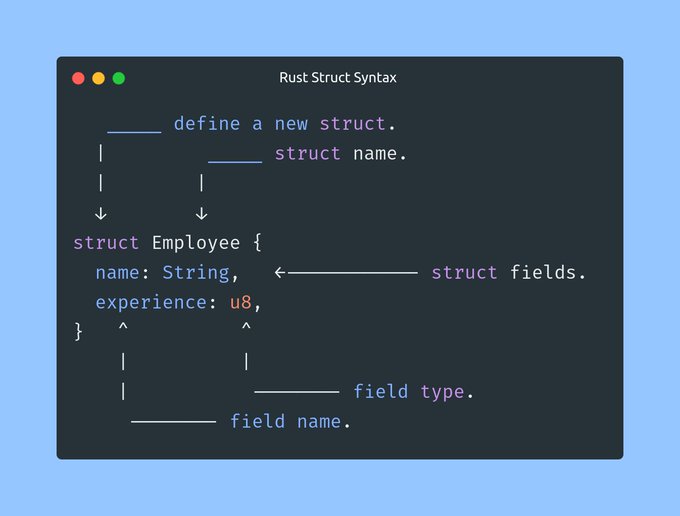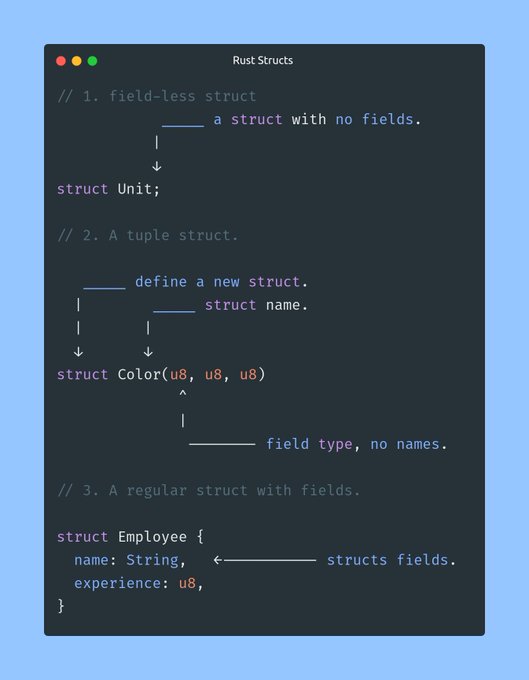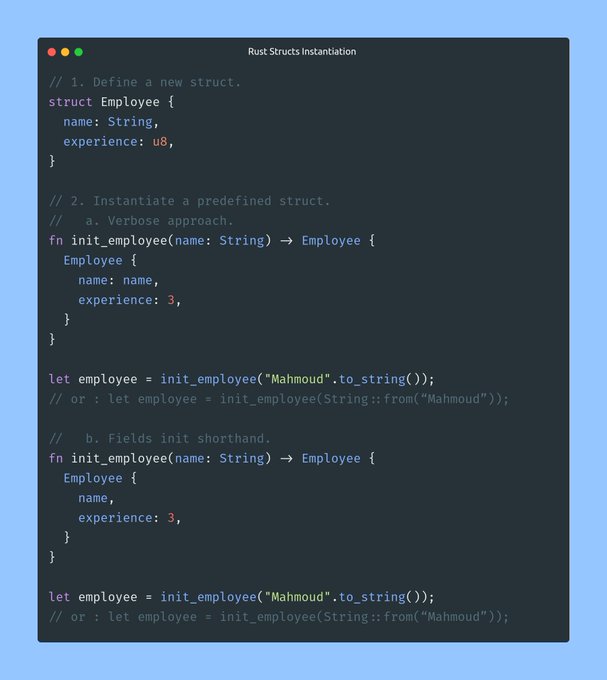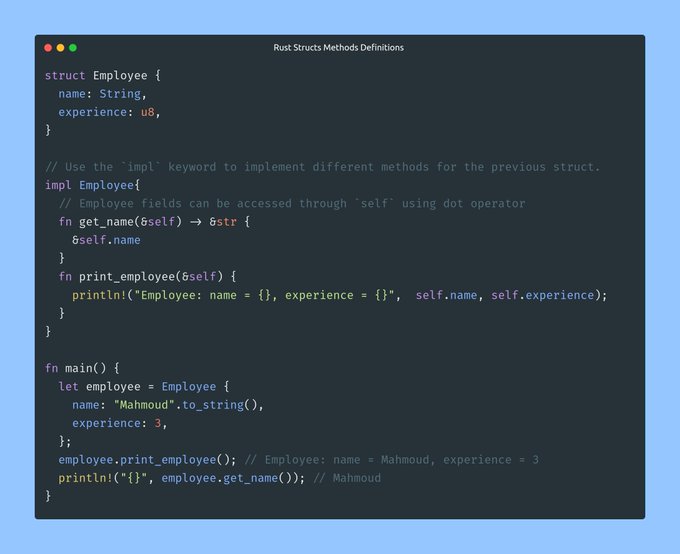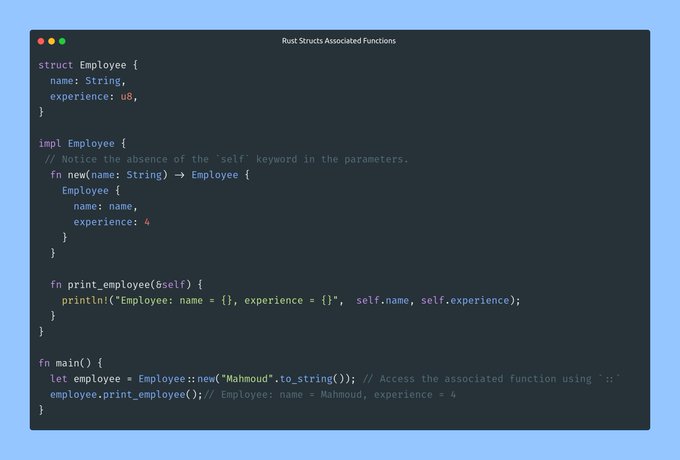🧵 Struct
-
Struct Syntax.
-
Rust’s
structkeyword allows us to define custom data types with named fields and associated data types. -
Use it to organize your data and write more efficient code.
struct Employee { name: String, experience: u8, } -
-
Structs Types.
-
Unit structs - field-less, helpful for generics.
-
Tuple structs - useful for grouping values of different types.
-
Regular struct.
struct Unit; struct Color( u8, u8, u8); struct Employee { name: String, experience: u8, } -
-
Structs Instantiation.
- Verbose approach.
- Fields init shorthand - if function parameter names match the struct field names.
struct Employee { name: String, experience: u8, } fn init_employee(name: String) -> Employee { Employee { name: name, experience: 2, } } let employee = init_employee("Mahmoud".to_string()); fn init_employee(name: String) —> Employee { Employee { nane, experience: 3, } } let employee = init_employee("Mahmoud".to_string()); -
Structs Shadow Copy.
- Re-instantiate with a new one.
- Update specific fields with new values and append
..<instance_name>.
// 1. Define a new struct. struct Employee { name: String, experience: u8, } // 2. Instantiate a predefined struct. let employee = Employee { name: "Mahmoud".to_string(), // or: name: String::from("Mahmoud") experience: 3, } // 3. Update an instantiated struct. // a. Re-instantiate with a new one. let employee Employee { name: "Mahmoud".to_string(), // or: name: String::from("Mahmoud") experience: 4, }; // b. add the fields whose values are different, and append `..< instance_name>` at the end. let employee = Employee { experience: 4, employee }; -
Structs Methods Definitions.
-
Rust structs come to life with methods!
-
Define them under an
implblock to access struct fields with the dot operator usingself.
struct Employee { name: String, experience: u8, } // Use the `impl` keyword to implement different methods for the previous struct. impl Employee{ // Employee fields can be accessed through self using dot operator fn get_name(&self) -> &str { &self.name } fn print_employee(&self) { println("Employee: name = {}, experience = {}", self.name, self.experience); } } fn main() { let employee = Employee { name: "Mahmoud".to_string(), experience: 3, }; employee.print_employee(); // Employee: name = Mahmoud, experience: 3 println("{}", employee.get_name()); // Mahmoud } -
-
Associated functions.
-
They don’t require
selfas a parameter and can be accessed using the::syntax. -
Use them to perform operations on the struct type itself rather than an instance of the struct.
struct Employee { name: String, experience: u8, } impl Employee{ fn new(name: String) -> Employee { Employee { name: name, experience: 4, } } fn print_employee(&self) { println("Employee: name = {}, experience = {}", self.name, self.experience); } } fn main() { let employee = Employee::new("Mahmoud".to_string()); employee.print_employee(); // Employee: name = Mahmoud, experience: 4 } -
You can refer to this twitter thread for more info.
